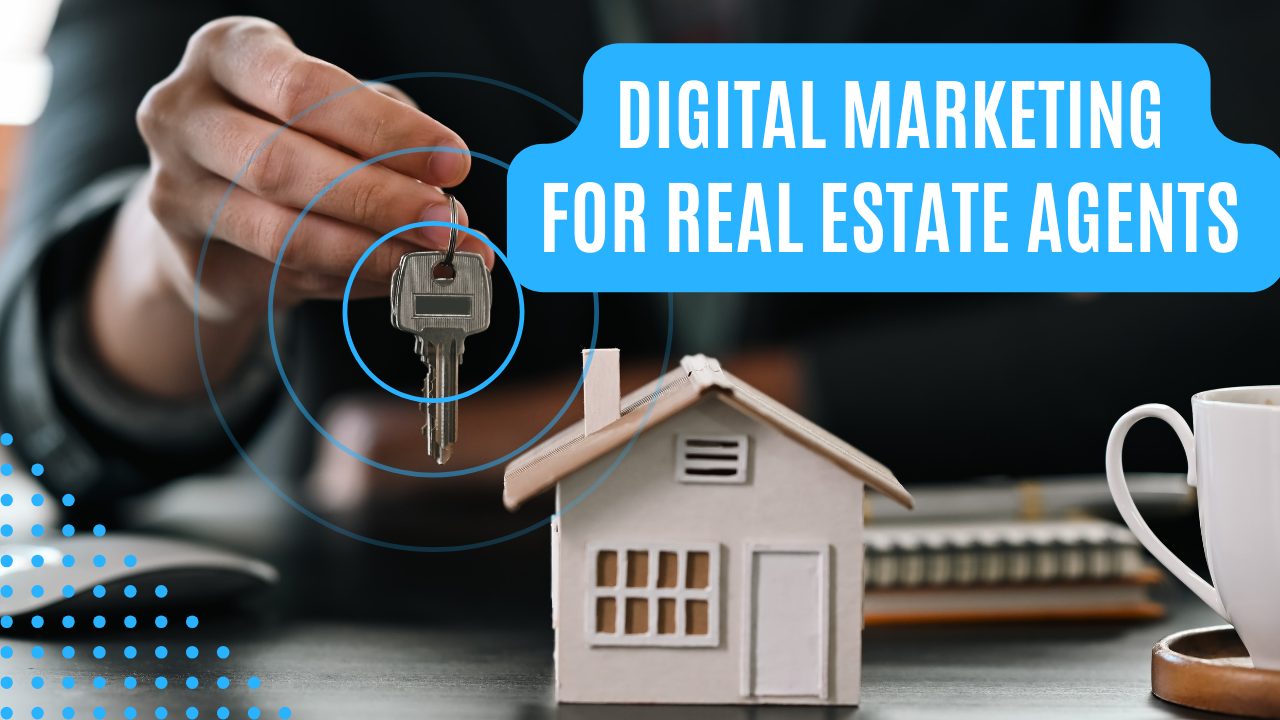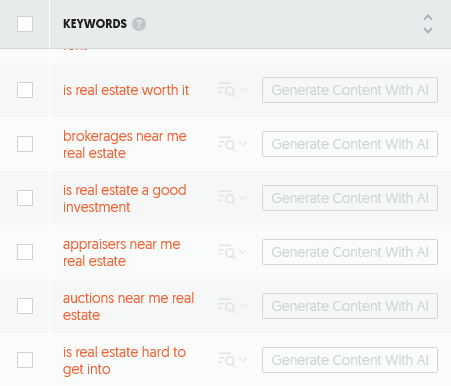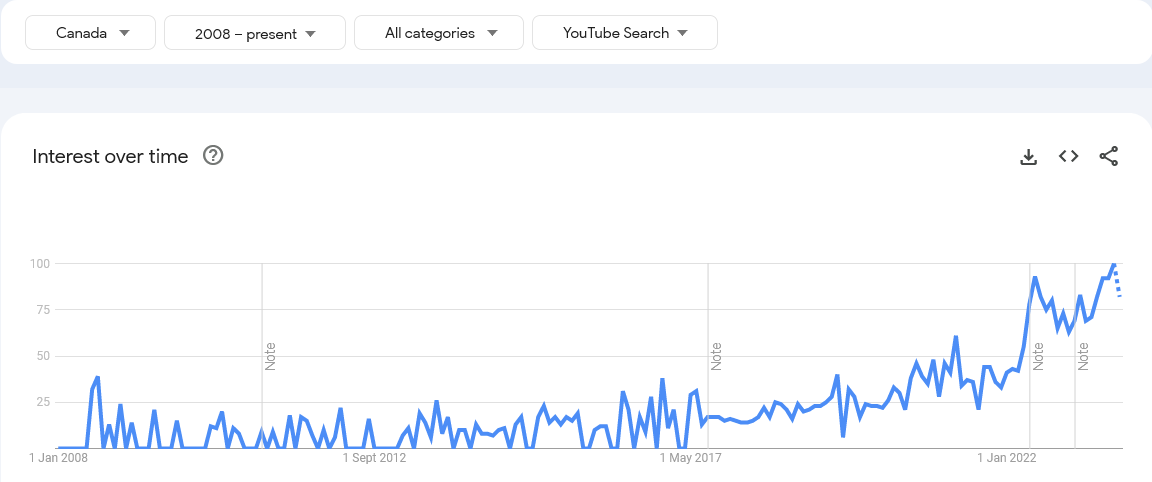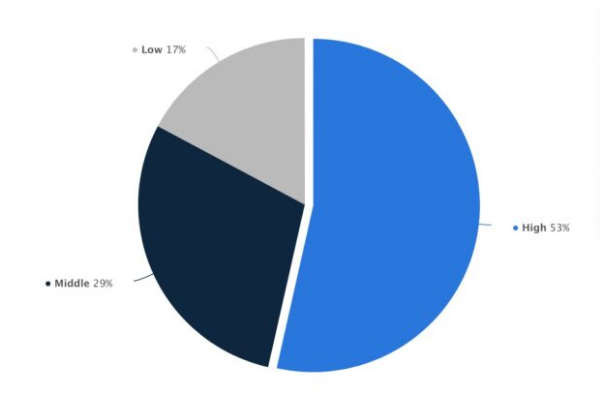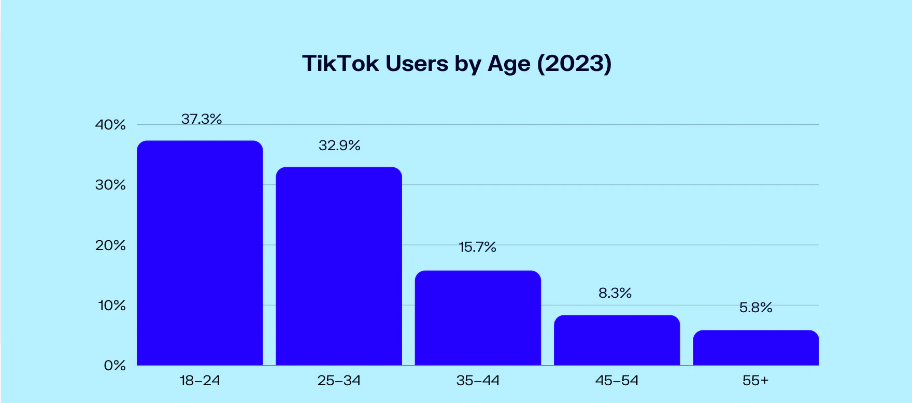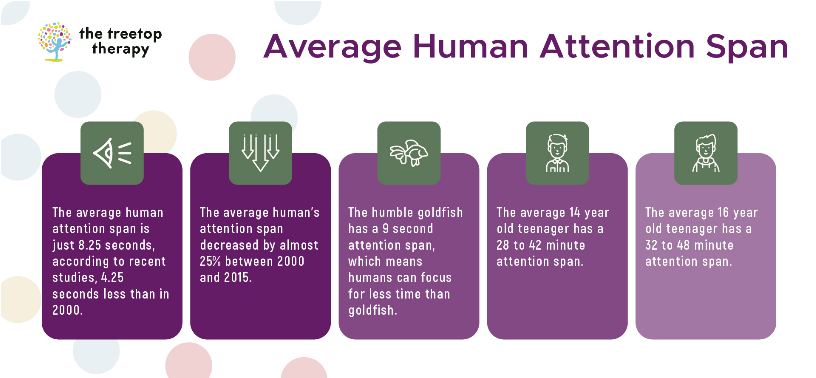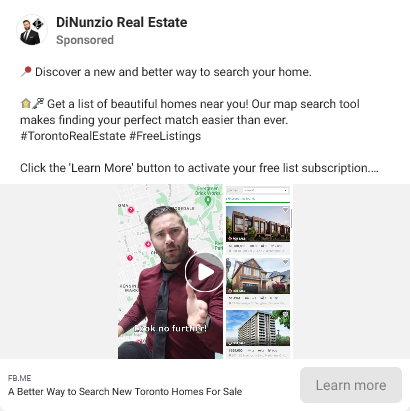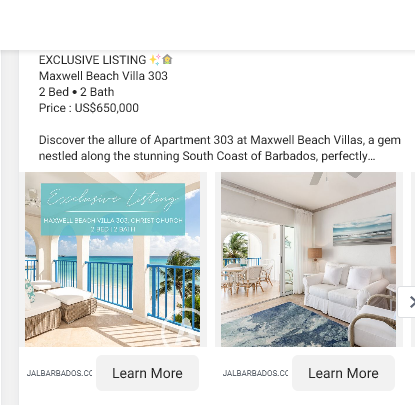Is Digital Marketing for Real Estate Worth It?
Absolutely. Today’s buyers turn to the Internet first when considering a property purchase. This shift emphasizes the importance of a strong online presence for realtors and real estate companies.
Having a well-optimized website isn’t just about showcasing properties. It’s a tool that captures potential buyer interest, tells your brand story, and gathers valuable lead information.
But how can you ensure your online efforts stand out in a crowded market?
Creating a real estate digital marketing strategy
Real estate digital marketing can be tricky – there are over 150,000 realtors competing against each other in the United States alone – but its rewards are undeniable.
Real Estate Web Marketing
In the real estate industry, your website acts as your digital storefront. Whether you’re an independent agent or a larger firm, an updated, user-friendly website is essential.
Key Aspects of an Optimized Real Estate Website:
- Design & User Experience: A clean design with intuitive navigation ensures visitors can easily find what they’re looking for.
- Homepage Essentials: Feature high-quality images of properties, a search function, and clear contact details.
- Landing Pages: Specific pages for property listings, client testimonials, and local market insights can enhance user engagement.
- Industry-Specific Sections: Consider adding pages like a blog for market trends, a FAQ section for buyers/sellers, and a dedicated space for virtual tours.
Crafting such a comprehensive and effective website requires a blend of time, expertise, and a keen understanding of the real estate market.
Whether you’re looking to revamp an existing site or start from scratch, the process can be intricate.
Let us do the heavy web development lifting for you while you focus on helping your clients. One of our dedicated project managers will optimize your current real estate site, or help you build a new one that shines.
Keep in mind that having a stellar website is just the starting point. The next step is to ensure potential clients can find it.
Promoting Your Real Estate Website:
When people think of advertising, social media, and PPC tend to be the first channels that come to mind. Although we’ll be looking at those in much more detail soon, there are some other ideas worth mentioning:
- Email Marketing: Regular newsletters with new listings, market updates, and open house schedules can keep your audience engaged.
- Local Partnerships: Collaborate with local businesses or community events and feature them on your site, creating a network of local support.
- Referral Programs: Encourage satisfied clients to refer friends and family, offering incentives for successful referrals.
- Community Engagement: Host webinars on home buying/selling tips, or participate in local web forums to establish your online presence.
In today’s digital age, a real estate professional’s online presence is as crucial as their in-person interactions.
By optimizing and actively promoting your website, you not only showcase properties but also build lasting relationships with potential clients, setting the foundation for continued success in the industry.
Real Estate SEO & Keywords
In the busy world of real estate, imagine your website standing out every time a family searches for their dream home in a specific neighborhood or someone seeks a condo with a rooftop garden.
By honing in on detailed search terms, you can be their first click. To start, understanding your target audience is essential. Are they first-time home buyers? Or are they looking for luxury homes? Knowing this helps tailor your SEO strategy.
Keywords play a central role here. Tools like SEMrush, Ahrefs, and Ubersuggest can help identify valuable terms.
Here’s an example from Ubersuggest:
(Source 1)
For newer real estate websites, focusing on long-tail, low-competition keywords can be beneficial.
Examples could include:
- [City Name] lofts in dog-friendly areas”
- “Eco-friendly homes near [City Name] parks”
- “Condos with pool access in [City Name]”
Whereas established real estate businesses with a strong online footprint might consider medium to high-competition keywords. These will be harder to rank for, but the clientele will have deeper pockets.
Examples could include:
- [City Name] homes with a view”
- Waterfront properties in [City Name]”
- [specific area] luxury apartment listings”
Once you’ve identified these keywords, where should they go?
- Integrate them into your website’s content, from blog posts to property listings. Ensure they appear in meta titles, descriptions, and headers.
- But remember, the user experience is paramount. Content should read naturally, with keywords enhancing, not hindering, readability.
Lastly, keep track of your SEO efforts. Regularly update your strategy and posts based on what’s working, ensuring your real estate business remains at the forefront of search engines and in the minds of potential clients.
And if you don’t like the sound of looking for low-competition keywords that might rank, we have a decade of experience streamlining this process and delivering results that resonate. You can see our full suite of SEO services here.
Real Estate Content Marketing
Content marketing for real estate businesses goes beyond just blog posts. It’s a strategy that, when executed well, positions a real estate company as the go-to source for local and national property insights.
1 – Start with research
Before crafting content, you can use free platforms like Google Trends or AnswerThePublic to understand the queries and concerns of potential clients. However, we recommend opting for a paid option as the results will be more specialized, accurate, and relevant.
Let’s see a real-life example with Google Trends.
Here, we put “Real Estate Canada” into its search and we chose to check how it’s trending on YouTube. It’ll give us an idea if it’s on an up or a downswing:
(Source 2)
It’s going up and in the direction we want – great! Maybe we should look at incorporating YouTube into our content strategy. What could it look like?
2 – Consider building or outsourcing a Real Estate YouTube channel:
Content could include:
- Property Showcases: Create videos that detail listings, emphasizing features like spacious backyards or modern kitchens.
- Market Insights: Share videos that offer data-driven perspectives on local real estate trends, such as the increasing demand for homes with green spaces.
YouTube not only helps in audience engagement but also boosts your online presence. When videos are optimized correctly, they can rank in search results, driving more organic traffic to your real estate website.
3 – Virtual property tours are a must-do in this niche
Virtual property tours have surged in importance. With the rise of digital channels, potential buyers expect a digital-first experience.
This could include:
- 360-degree Home Walkthroughs: Offer potential buyers an immersive experience of the property without them having to step foot inside.
- Interactive Floor Plans: Allow clients to click on different areas of a digital floor plan, leading them to detailed views or videos of each specific room or space.
In the real estate niche, skipping out on virtual property tours can mean missing out on a significant chunk of potential clients.
As homebuyers increasingly lean on digital tools, offering a detailed, virtual insight into properties can be the deciding factor in sealing a deal.
Real estate social media posts
Social media is your digital handshake in real estate. It’s where you meet, greet, and keep your audience engaged.
Let’s look at the main platforms:
Why Facebook?
- 53% of users are over 35, aligning perfectly with the average first-time homebuyer age in the U.S. of 36.
(Source 3)
- Use Facebook Groups to create a community around local real estate topics; they could be a goldmine for organic leads.
LinkedIn’s Strengths
- Over half of LinkedIn users earn more than $75,000 annually and are in the “high income” category.
(Source 4)
- So you could – for example – use LinkedIn Articles to showcase your expertise in luxury real estate; it’s where more affluent social media users are engaging.
Instagram: More Than Just Photos
- Instagram Stories are perfect for quick, 24-hour open house previews.
- Use Reels for short, engaging home tours; they’re shareable and discoverable.
Twitter: Quick and Timely
- Ideal for sharing bite-sized market updates.
- Use hashtags like #NewListing or #OpenHouse to increase discoverability.
TikTok: Not Ideal
70% of users are between 18-34; so probably not your target demographic for serious real estate investment.
(Source 5)
In a nutshell, choose your platforms wisely.
Facebook and LinkedIn are ideal for reaching an older, financially stable audience. Instagram and Twitter offer visual and quick updates and TikTok doesn’t align well at all with serious real estate goals.
To truly thrive in the real estate market, knowing where your audience hangs out online is as crucial as knowing the neighborhoods you sell in.
Realtor social media
Independent realtors often have more flexibility and can be more personal on social media.
- Personal Branding: Use Instagram or YouTube to showcase not just homes but also your day-to-day life as a realtor; this humanizes your brand.
A good example of this is realtor Ryan Serhant who’s built up almost 1.4 million subscribers on YouTube:
- Local Expertise: Tweet about hyper-local market trends; this sets you apart from larger firms that generalize.
- Direct Communication: Use LinkedIn to directly reach out to potential clients; no need to go through a corporate chain.
In essence, independent realtors can turn the intimate scale of their operations into an advantage by using social media to offer a more personalized, locally-focused service.
Real estate digital advertising
It’s crucial to also consider the role of ads within these social platforms. And what about PPC advertising?
Let’s look at how to get the best bang for your buck to amplify your real estate business.
Real Estate PPC Advertising
Google Ads lets you zero in on specific locations. This is key for real estate, where location often seals the deal.
Look at how crazy competitive “Buy home in Toronto” is, for example. The organic results don’t stand a chance against the first four paid Ads:
Types of Google Ads
Local Service Ads are specifically worth your attention. They pop up for local searches and take up a lot of screen space, especially on mobile.
(Source 6)
Finding Your Audience
Use Google Ads’ demographic settings. Layer criteria like home ownership status to reach the people who are most likely to convert.
Negative Keywords
Use negative keywords to avoid irrelevant clicks. For instance, if you don’t deal in commercial properties, add “commercial” as a negative keyword.
Ad Extensions
Use multiple ad extensions for a fuller picture. For example:
- Location extensions to show the property’s proximity
- Price extensions could guide users to specific floor plans
- Call extensions make it easy for potential buyers to contact you directly.
And if you’re thinking “I’d rather focus my time on selling homes, thanks”, let us give you a helping hand with your PPC campaign.
Real estate Facebook ad examples
Love them or hate them, social media platforms have an incredible reach for advertisers in many professions.
And, as we touched on earlier, Facebook’s demographics align very well with the real estate market.
How can we use it to our advantage?
Meta Business Suite: Your Control Center
Start by navigating to Meta Business Suite. Here, you can create carousel ads that showcase multiple properties or single-image ads for a focused approach.
Why Not Just Photos?
Attention spans are now at an all-time low at less than 9 seconds:
(source 7)
So consider incorporating short, engaging videos. Meta Business Suite allows you to upload and edit these directly.
This Toronto real estate company is a good example of being aware of people’s increasing shiny object syndrome. It has video content running concurrently with snappy Ad copy:
Targeting the Right Audience
Use the suite’s “Audience Insights” to find people who are likely to be interested in real estate. Filter by age, location, and even specific interests like “home improvement.”
Measuring Success
Meta Business Suite also offers analytics. You can track metrics like click-through and conversion rates to understand what’s resonating with your audience.
The aim here is to make your Facebook ads as effective as possible, using the tools at your disposal to reach the right people.
Real estate Instagram ads
Instagram’s visual-centric platform is also a boon for real estate. Carousel ads let you flaunt multiple property angles, from sleek kitchens to sky-high views.
Targeting the Affluent:
To catch the eye of high-earners, you could use Meta Business Suite for laser-focused targeting.
For example:
Selling Barbados apartments? Set your location to financial hubs, your demographics to high earners, and your interests to “luxury travel”; your properties will pop up in the right feeds.
Here’s a company that did just that and emphasized the beauty of its apartments and location:
Quick Tips
- Schedule ads during high-engagement hours via Meta Business Suite
- Use popular real estate hashtags to amplify reach;
- Offer virtual tours through Instagram Stories.
In a nutshell: Instagram lets you elevate your digital marketing campaigns and connect with a target market that craves visual storytelling.
Final digital marketing ideas for real estate
What else can you add to your real estate digital marketing toolkit?
- Chatbots for Immediate Customer Service: Implement AI chatbots on your website to answer queries in real time, guiding visitors to relevant listings or services.
- Virtual Reality Home Tours: Offer an even more immersive experience than 360-degree walkthroughs by providing VR home tours that users can experience with VR headsets. With Apple Vision Pro coming in 2024 this is something your more affluent customers will love
- Interactive Quizzes and Calculators: Add mortgage calculators or “Find Your Dream Home” quizzes to your site to engage visitors and collect lead information.
- Podcasts on Real Estate Trends: Start or outsource a podcast discussing market trends, interviewing industry experts, and offering buying/selling tips to establish authority
- Interactive Maps: Integrate interactive maps on your listing pages to show nearby schools, parks, and other amenities. This provides additional information that can help buyers make a decision.
- Community Spotlight Videos: Create short videos highlighting local businesses or attractions near your listings. This adds value and helps potential buyers visualize their life in a new area.
Wrapping Up…
Ready to turn your real estate digital marketing into a showstopper?
From crafting a user-friendly website to executing a strong social media strategy; doing it all yourself or in-house is a tall order.
At Nomadic Advertising, we’ve got the expertise you need! Want a website that captivates and converts? Check out our Web Design and development services. Struggling to rank on Google? Our SEO services can elevate your online visibility. Need to engage your potential house buyers effectively? Our Facebook Advertising and Social Media Marketing services are your go-to solutions.
Don’t just list properties online; make them irresistible. Book your free 30-minute consultation today and let’s turn your digital marketing into prime real estate.

